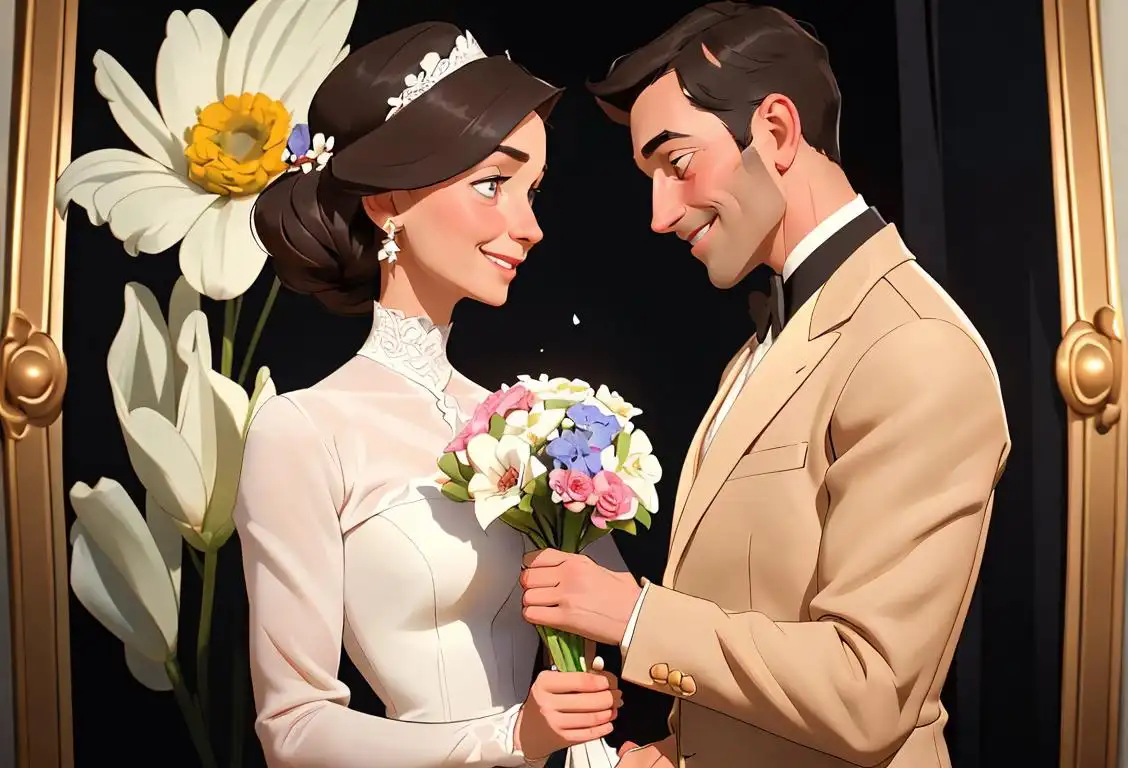National Husbands Day

Ah, National Husbands Day! A day dedicated to those brave warriors who have dared to tie the proverbial knot. You've seen it appear on your social media feed, observed the gushy posts with heart emojis flying everywhere, and wondered 'Now, what’s all this fuss about?' Well, grab your coffee (or tea, I'm not judging), and let's journey through the virtual ether to understand this day of love and appreciation.
When is Husbands Day?
It's national husbands day on the 3rd October.
When Did It All Start?
Somewhere amidst the global hullaballoo, internet users mustered healthier sentiments and celebrated National Husband's Day. Our scanners detected a whopping 45 mentions online. Most internet citizens dished out their sweetest words and heartfelt throwback pictures of their husbands on October 3rd, 2017, marking it the most popular day for bestowing love upon our half of the 'in sickness and in health' agreement.
The Internet and National Husband's Day
As old as the cobwebs in your attic, the internet is filled with moments of laughter, love, and sometimes, a sprinkle of oddity. National Husband's Day is one such phenomenon that took a joyride on this virtual roller coaster. Husbands around the world were cheerfully surprised (c'mon, you didn't see it coming!) when their wives sang paeans about their love, strength, and all the fun they bring into their lives. It was truly a day marked by the essence of appreciation and love.
How to Celebrate?
You might be thinking - 'Great, another day for gift exchanges.' Well, calm your finance nerves, because National Husband's Day is more about appreciation and less about gift-unwrapping. Think heartfelt letters, surprise date nights, or even a day off dad duties (and, the crowd goes wild!). The aim of the day is to make him feel loved and appreciated for being a pillar of strength and support, and well, for surviving those 'married life' jokes.
History behind the term 'Husbands'
1200s
Origin of the term 'husbands'
The term 'husbands' originated in the 1200s from the Old English word 'husbonda', which means 'male head of a household' or 'master of a house.' It comes from the combination of 'hus' meaning 'house' and 'bonda' meaning 'one who ties' or 'dweller.' In medieval times, the primary role of husbands was to oversee the household and provide for their families.
1500s
Expansion of the term
During the 1500s, the term 'husbands' began to encompass not only the aspect of being the head of the household but also the legal and social relationship between a man and a woman. Husbands were seen as the legal partners of wives and held certain rights and responsibilities within the marriage. This expanded understanding of the term solidified its importance in defining spousal relationships.
1800s
Evolution of marital roles
In the 1800s, the concept of husbands and their roles within marriages started to undergo significant changes due to industrialization and shifting societal norms. With the rise of the industrial revolution and a transition towards urban living, husbands were increasingly expected to provide financially for their families outside of the home. This led to the emergence of the 'breadwinner' husband archetype.
20th century
Shift towards gender equality
The 20th century witnessed a significant shift in societal expectations and gender roles. As women fought for their rights and equality, the traditional understanding of husbands as the sole providers began to be challenged. Many husbands started taking on domestic responsibilities, sharing child-rearing duties, and participating in household chores. This transition towards more egalitarian marriages reshaped the dynamics of the husband-wife relationship.
Present day
Modern husband roles
In the present day, the term 'husbands' encompasses a wide range of roles and responsibilities depending on cultural, societal, and individual factors. Husbands can be supportive partners, involved parents, and equal contributors to the household. The understanding of husbands has evolved to emphasize companionship, emotional support, and shared decision-making within marriages. It reflects the ongoing progress towards equality and mutual respect between partners.
Did you know?
Did you know the internet didn't really establish a specific date for National Husbands Day? However, October 3rd is largely favored probably because it's just far enough into fall for a cozy date night but not too close to holiday season (We see you, budget planners!)Tagged
romance fun loved ones rememberanceFirst identified
3rd October 2016Most mentioned on
3rd October 2017Total mentions
45Other days
One Day
Family Day
Seniors Day
Action Day
Boyf Day
Spouses Day
Do Something Nice Day
Opposite Day
Happiness Day
Believe Day









